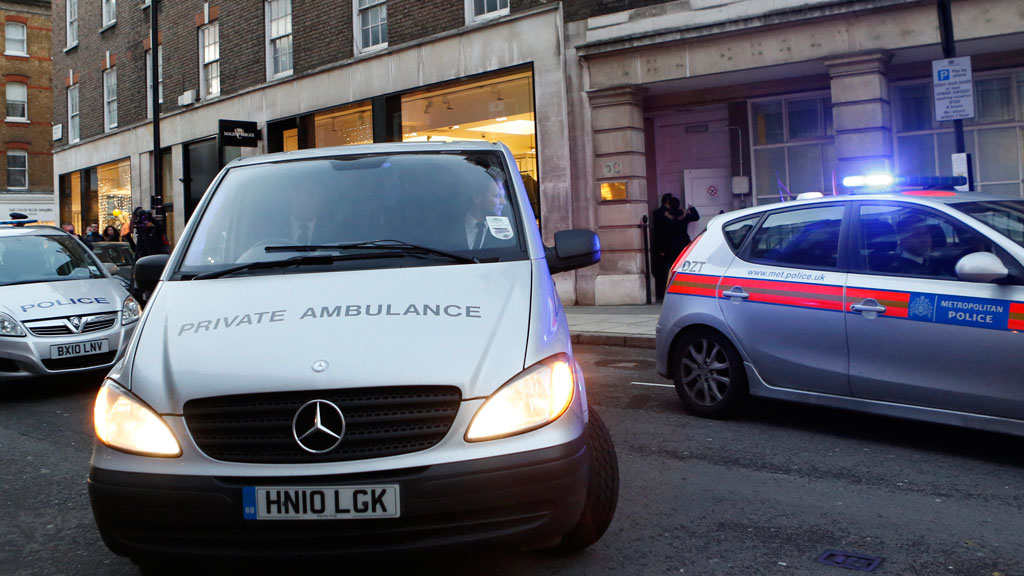Kate prank radio station disciplined over rape show
The Australian radio station behind the prank call to the Duchess of Cambridge has a history of controversy.

2Day FM is already serving two five-year licence probations for breaching Australia’s Broadcasting Services Act. There was no word on Friday on whether there will be further action after its DJs called up London’s King Edward VII hospital pretending to be the Queen enquiring about Kate Middleton‘s condition.
Jacintha Saldaha, the nurse who believed she was transferring a call from “the Queen” was found dead today several yards from the hospital. The prank was considered deeply embarrassing for the hospital, which said it had been supporting Ms Saldanha during a difficult time.
The Sydney-based radio station 2Day FM was continuing to promote its prank Kate call on air on Friday, referring to it as “the prank call the world is talking about”. It was not clear if the promotion was part of a pre-recorded, automated loop.
Russell Brand and Jonathon Ross lost their jobs over a bad prank phonecall… what action will be taken against @mcontheradio ? #royalprank
— Lamicus Minimus (@LamStock) December 7, 2012
Twitter commentators called for the resignation of the two DJs responsible for the Kate prank – Mel Greig and Michael Christian, presenters of the weeknight show The Summer 30.
In a statement, the radio station responded to the calls saying: “Southern Cross Austereo (SCA) and 2Day FM are deeply saddened by the tragic news of the death of the nurse, Jacintha Saldanha.”
“CEO Rhys Holleran has spoken with the presenters, they are both deeply shocked, and at this time we have agreed that they not comment about the circumstances.”
“SCA and the hosts have decided that they will not return to their radio show, until further notice out of respect for what can only be described as a tragedy.”
2Day FM has a history of shock jock prank calls. The Australian Communications and Media Authority imposed a licence condition for five years ordering 2Day FM to provide increased protection for children after a 14-year-old was attached to a lie detector test in 2009 and pressured to discuss her sex life on air.
Despite the girl’s protests that she was “scared” and believed the questions were not “fair” the “Kyle & Jackie-O” radio show host encouraged both the girl and her mother to discuss whether she was sexually active, to which the girl responded: “I’ve already told you the story of this and don’t look at me and smile because it’s not funny. Oh, okay. I got raped when I was 12 years old.”
To which the host replied: “Right. And is that, is that the only experience you’ve had?”
“Overall, we believe that the child was exploited and treated cruelly by 2Day FM. The broadcast made the exploitation all the more humiliating and public,” the Law Society of New South Wales Young Lawyers said in a submission to the Australian Communications and Media Authority in September 2009.
In another incident, the radio station said it had raised $AUS 150,000 for a family who believed they were being awarded the money to help care for their disabled child. When they tried to claim the donations, they were instead given the names of those who’d pledged money and were not able to collect more than $50,000, according legal submissions filed with the Australian regulator.
Best practice
Australian radio stations are subject to the Broadcasting Services Act 1992, a self-regulatory scheme for commercial radio which sets out a number of codes in relation to best industry practice.
In a submission to the regulator, the Young Lawyers drew attention to a series of “Heartless Hotline” shows which involved exploiting disadvantaged individuals who were offered a prize which could be snapped away from them by listeners.
The Law Society of New South Wales Young Lawyers’ said the stunts “demonstrated a pattern of behaviour that involves the exploitation of the disadvantaged for the entertainment of others.”
In one instance, a mother of five children, four of them disabled, was offered tickets to take her family to the Sydney Royal Easter Show – but only if no other “heartless” listener claimed the called within 30 seconds. The woman was then encouraged to bicker with a caller while the station decided whether to award the tickets.
In a fourth instance, radio host Kyle Sandilands suggested Polish actress Magda Szubanski should lose weight by visiting a concentration camp.
The code has been insufficient to regulate radio stations, according to Young Lawyers, because it does not require broadcasters to use a “kill switch” to terminate a broadcast, there are no required training programmes or processes to pre-approve or identify questionable content, and there is no protection against possible exploitation of underage or disadvantaged persons,
John Lofthouse, Chief Executive at King Edward VII’s Hospital, said in a statement on Friday that his thoughts and deepest sympathies were with the family of the nurse. “Everyone is shocked by the loss of a much loved and valued colleague.”